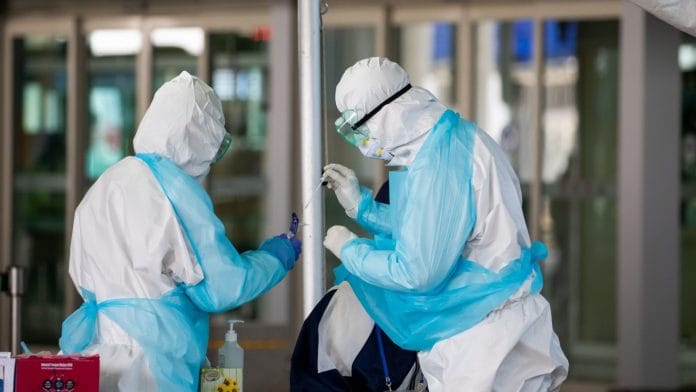New Delhi: While the coronavirus pandemic has brought the whole world to a standstill, scientists are learning more about the virus every day and continue their attempts to develop more effective therapies against it.
Here are some of the latest scientific developments around the novel coronavirus.
No evidence to support high vitamin D doses can prevent, treat Covid-19
There is currently insufficient scientific evidence to show vitamin D can be beneficial in preventing or treating Covid-19, according to scientists .
Following several reports that high doses of vitamin D could reduce the risk of contracting Covid-19 and can be used to successfully treat the virus, scientists analysed the current scientific evidence on the vitamin and its use in treating infections.
The report, published in the journal BMJ, Nutrition, Prevention and Health, found no link between vitamin D supplements and prevention or treatment of Covid-19. Furthermore, they cautioned against over supplementation of the vitamin, without medical supervision, due to health risks.
Scientists, including those from the University of Birmingham and at the University of Surrey in UK, noted that while an adequate level of vitamin D in the body is crucial to our overall health, too much can lead to an increase in calcium levels in the blood which could be particularly harmful.
Also read: Oxford, AstraZeneca begin advanced trials of Covid vaccine
Researchers report first case of Covid-19 infection causing thyroid infection
Scientists report that an 18-year-old patient in Italy has developed a thyroid infection after recovering from Covid-19. This is the first time a thyroid infection has developed in a Covid-19 patient.
The condition known as subacute thyroiditis is an inflammatory thyroid disease characterised by neck pain and is usually preceded by an upper respiratory tract infection. It may be caused by a viral infection or a post-viral inflammatory reaction, and many viruses have been linked to the disease, according to the researchers from University Hospital of Pisa in Italy
According to researchers of the study, published in The Journal of Clinical Endocrinology & Metabolism, the patient had completely recovered from Covid-19, but started experiencing some additional symptoms even after testing negative for SARS-CoV-2.
The young woman had neck and thyroid pain, fever and an increased heart rate. She was sent back to the hospital, where she was diagnosed with subacute thyroiditis. She had normal thyroid functioning and imaging just a month earlier.
The team says that physicians should be alerted about the possibility of this additional clinical manifestation related to Covid-19.
Strokes more severe in younger Covid-19 patients
While the rate of strokes in Covid-19 patients appears relatively low, they are more common in younger people and are often more severe than strokes in people who do not have the novel coronavirus, according to a study published in the journal Stroke.
The study looked at 3,556 hospitalised Covid-19 patients in New York City. Of these, 32 patients (0.9 per cent) had imaging-proven ischemic stroke.
They compared these 32 patients to those only with stroke (46 patients) and found that the patients with Covid-19 tended to be younger, had more severe strokes and were more likely to die.
Covid-19 stroke patients were also less likely to have high blood pressure or a prior history of stroke, unlike normal stroke patients.
Also read: Ignore hype and euphoria over any Covid vaccine news for next 2-3 months: Adar Poonawalla
More efficient replaceable filters developed for N95 masks
Scientists have developed a membrane that can be attached to a regular N95 mask and replaced when needed — a technology that could help address the worldwide shortage of masks.
Since the Covid-19 outbreak, there’s been a worldwide shortage of face masks — particularly, the N95 ones worn by health care workers. Although these coverings provide the highest level of protection currently available, they have limitations.
N95 masks filter about 85 percent of particles smaller than 300 nm. SARS-CoV-2 is in the size range of 65-125 nm, so some virus particles could slip through these coverings. The new filter, developed by researchers from King Abdullah University of Science and Technology (KAUST), has a smaller pore size than normal N95 masks, potentially blocking more virus particles.
The researchers described this technology in the journal ACS Nano and said that the membrane is also water-repellant. This allows droplets to slide off it, preventing the pores from getting clogged with viruses and other particles.







Hi Mohana
Can you please share data on vitamin D levels in Indian population and then access the chances of over supplimentation. You should have mentioned several research showing role of vitamin D in faster recovery in influenza.